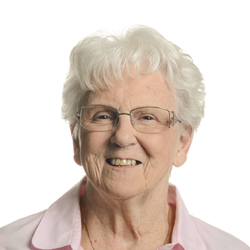
As winter approaches, Betty Heath finds herself contemplating the clutter of her life. The seasonal transition serves as a reminder that the accumulation of possessions often leads to a cycle of excess. Heath, reflecting on her experiences, notes that the time has come to sort through her belongings and consider what is truly necessary.
Heath describes her storage closet under the stairs as a testament to the relentless cycle of acquiring and storing possessions. “My daughter says her life is just a constant movement of stuff,” she shares, highlighting a sentiment that resonates with many. The notion of “stuff” has become a central theme in modern life, as individuals navigate the challenges of working to acquire more while simultaneously grappling with the burden of what they already possess.
The emotional weight of possessions can lead to familial disputes, as illustrated by a friend’s experience. After the passing of their last parent, tensions arose among siblings when it came time to divide the family heirlooms. The situation escalated, resulting in the men of the family taking drastic action to clear the house by burning valuable antiques while the women argued in the kitchen. Such instances underscore the complexities of inheritance and the significance placed on material items.
Another friend of Heath’s exemplifies this struggle with their collection of fine-bone china, believed to have been brought to America by ancestors on the Mayflower. Despite its historical value, the china’s worth is overshadowed by the cost of restoring a piano, which could exceed $40,000. This raises questions about the true value of possessions: Is it their monetary worth, or the memories and history they carry?
In today’s economic climate, many individuals are choosing to hold onto their belongings, driven by a fear of loss. Heath expresses this sentiment, stating, “We worry over the big stuff and sweat over the small stuff.” The societal pressure to measure self-worth through material possessions continues to be a prevalent issue.
As she prepares to tackle her own clutter, Heath contemplates the possibility of discarding everything and starting anew. Such a drastic decision may seem extreme, yet it reflects a growing desire for simplicity in an increasingly complicated world.
In conclusion, the exploration of material possessions raises significant questions about value, legacy, and the emotional ties we form with the things we own. Heath’s reflections serve as a reminder that while our belongings may define aspects of our lives, they should not dictate our worth.
For further thoughts, readers can reach out to Betty Heath via email at [email protected].






